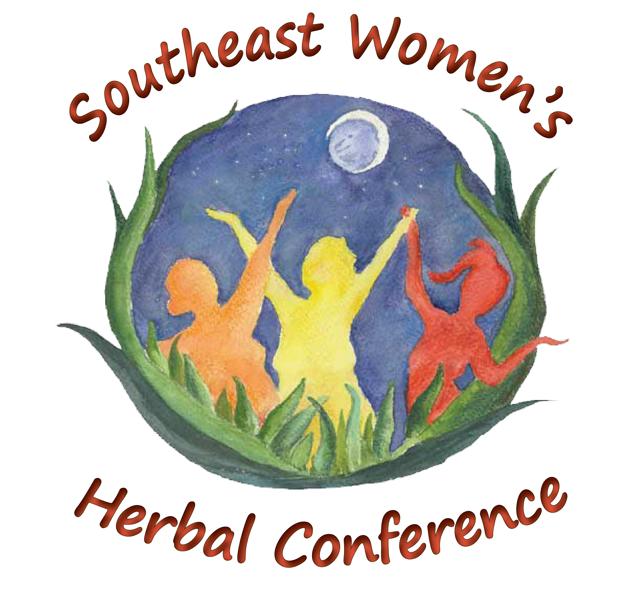Herbalist, midwife and Yale-trained physician Aviva Romm, the keynote speaker at this year's Southeast Women's Herbal Conference, blends all three perspectives in the practice of integrative medicine.
The annual event covers topics ranging from herbalism to sexuality to do-it-yourself medicine (see box, “Planting Seeds”). Last year, more than 900 women attended. Xpress picked Romm’s brain about her journey from herbalist to M.D. and her views on mainstream attitudes toward healing. Here are excerpts from that conversation:
Mountain Xpress: What attracted you to herbalism and integrative medicine?
Aviva Romm: I started learning about it back in 1981; at that time, I’d thought about going to medical school. But it really didn't feel consistent with the lifestyle I was living, which was much more natural, back-to-the-land. Around that time, I learned about herbal medicine as well: It was consistent with my value system and an environmentally friendly approach to medicine. There were so many things that appealed to me, but particularly the physical-to-the-spiritual aspect.
Could you say more about that physical/spiritual connection?
Pharmaceutical drugs are produced in a laboratory; there's really nothing connected to nature about them. When you think about botanicals, though, they're growing in the Earth, and they're harvested with attention to what’s the best season for the medicine. In learning more about them, it connects you toward the first-stage awareness of healing. You learn more about yourself and can slow down in your life, as opposed to just stopping in the pharmacy and buying a drug.
How do you define healing?
I think about healing as any intention that somebody has to be on the path to wellness. Somebody who’s paralyzed in a wheelchair can have their own kind of healing, in terms of coming to grips with their life and making the best of it: choosing to want to be well with whatever that means.
It’s not a word doctors use very often. Why do you think that is?
In Western medicine, there isn't much attention to the whole person — the psychosocial, spiritual, emotional aspects that make a person well. More and more doctors are becoming aware of that and the importance of it, but because most doctors have 15-minute appointments with their patients, they often just don't have time to address those things. Also, unlike herbalists, who tend to be a little more aware and interested in learning how to use intuition, observational skills, the senses and what some people might call spirituality, so much in medicine has been about what's happening physically.
While you were at Yale, you challenged those historical notions, helping pioneer the school’s integrative-medicine curriculum. Was that difficult?
Yale is incredibly progressive and open-minded: Its physicians and faculty tend to be curious scientists. So they wanted to know about it and what I did. When patients who were taking an herbal or nutritional supplement came into the hospital, the doctor would ask if I could talk to the patient about how to use it safely, how it would interact with their pharmaceuticals.
And you’re also a midwife?
I was a midwife for over 20 years before going to medical school. What really started me down that path was an article I saw that talked about ways that we birth or get born that may have a long-term influence on psycho-emotional well-being. That's when I realized that you could actually change the world and make it a better place by helping babies get born in a more gentle way.
The politics of birth have continued to escalate in the United States: We now have a 30- to 40-percent national C-section rate. The American Congress of Obstetricians and Gynecologists predicts that by 2015 there will actually be a 50-percent C-section rate, meaning one in two women won’t give birth vaginally. I feel a real strong political commitment, almost like an ecological commitment, to helping women preserve the right to give birth naturally as much as possible, whatever way they want to.
Could you give us a preview of your keynote speech?
It's about helping herbalists and women feel empowered to take back their own health, take it into their hands. One of my other talks is on complex-but-common conditions that I have a lot of unique experience with as both herbalist and physician: fibromyalgia, chronic fatigue, irritable bowel syndrome. A lot of folks struggle with these, not just women. There's some unique insights and very practical, hands-on information that people can take home with them and start using.
— Send your health-and-wellness news and tips to Caitlin Byrd at cbyrd@mountainx.com or mxhealth@mountainx.com, or call 251-1333, ext. 140.




Before you comment
The comments section is here to provide a platform for civil dialogue on the issues we face together as a local community. Xpress is committed to offering this platform for all voices, but when the tone of the discussion gets nasty or strays off topic, we believe many people choose not to participate. Xpress editors are determined to moderate comments to ensure a constructive interchange is maintained. All comments judged not to be in keeping with the spirit of civil discourse will be removed and repeat violators will be banned. See here for our terms of service. Thank you for being part of this effort to promote respectful discussion.